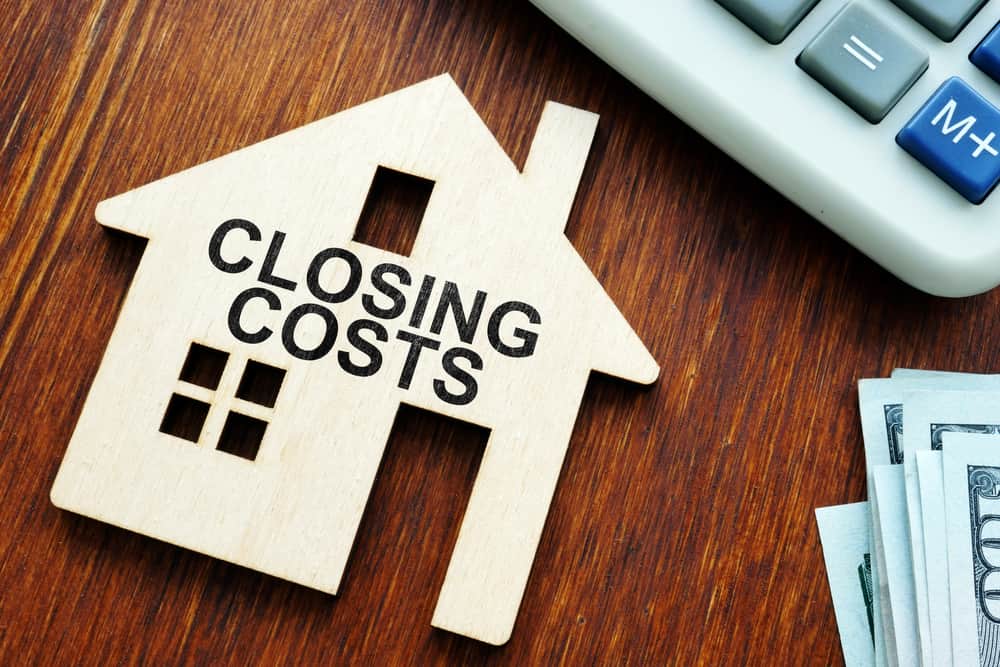If you are one of the countless home buyers who reach the end of escrow only to encounter an onslaught of taxes and fees, you have most likely wondered how to avoid closing costs when buying a house. Representing an additional percentage of the purchase price, closing costs can undoubtedly have a dampening effect on the excitement of buying a home. Although it is impossible to completely cut closing costs, some fees can be reduced or reallocated through negotiation. Read on to receive some tips on how to avoid closing costs as much as possible.
What Are Real Estate Closing Costs?
Closing costs are additional fees paid at the end of the home buying process. The stage of a real estate transaction during which the property title is officially transferred from the seller to the buyer is called “closing.” At this time, taxes and fees associated with the purchase of the home are assessed, thus explaining the origin of the term. Closing costs usually range between six to three percent of the property’s purchase price, fluctuating based on local, state, and national property tax rates.
As their name suggests, closing costs facilitate the closing process. They essentially pay for everything required to complete a real estate transaction outside of the purchase price. For example, some of the costs will be dedicated to the mortgage origination. The bank will charge a fee to “originate” or create a loan — usually one percent of the mortgage amount. The buyer is responsible for that fee, and many others, in the form of a closing cost. Here are some other closing costs to expect:
-
Property appraisal fees
-
Real estate agent fees
-
Loan origination
-
Survey fee
-
Cost of running a credit report
-
Home inspection fees
-
Cost of completing a title search
-
Taxes on the home loan amount
-
Document recording fees on the deed and mortgage
-
Escrow deposit
-
Mortgage points
-
Attorney fees
-
Private mortgage insurance (if required)
When it comes to who pays closing costs when selling a house, it should be noted that both buyer and seller are responsible. Note that the buyer will be responsible for most of the fees, particularly when it comes to loan origination, loan taxes, and credit assessment.
[ Thinking about investing in real estate? Register to attend a FREE online real estate class and learn how to get started investing in real estate. ]

Can You Negotiate Closing Costs?
You can and should negotiate your closing costs, especially as the price tag on buying a home continues to rise. Although there is no way to eliminate all taxes and fees, there are methods to drastically cut down some of the negotiable line items. In October 2015, the Consumer Financial Protection Bureau put into effect the Loan Estimate, which requires lenders to provide a thorough breakdown of the mortgage loan you have applied for, including the closing costs. The Loan Estimate has made it particularly helpful for shoppers interested in negotiating their closing costs before committing to a mortgage loan.
Are A Down Payment And Closing Costs The Same?
A down payment and closing costs associated with purchasing a property are not the same; rather, they are two distinctly different types of payments. A down payment is typically a percentage of the property’s purchase price which the buyer must pay out of pocket. When a buyer pays closing costs, it typically includes taxes and fees but is in no way related to reducing the principal on the mortgage loan.
Is It Possible To Avoid Closing Costs Completely?
Unfortunately, it is nearly impossible to avoid closing costs altogether. Closing costs contain necessary products and services to complete your mortgage and buying process, and those costs just can’t be avoided. If you really can’t stand the idea of paying closing costs upfront, you can opt to roll them into your mortgage by using a no-closing-cost mortgage. This is a great way to keep some cash on hand in the beginning, but you need to remember that those closing costs are now accumulating interest and they are going to cost you more in the long run. As with nearly every decision when buying a house, there are tradeoffs when deciding on which method is right for you and your financial situation.
How To Avoid Closing Costs When Buying A House
Although cutting out closing costs outright is not possible, there are strategies to minimize costs through negotiation. When examining who usually pays closing costs, an extensive amount falls on the buyer. However, the buyer can negotiate so that some of the fees are reduced or assumed by the lender or shifted to the seller’s closing costs. Below you will find some creative tactics on how to avoid closing costs as much as possible:
1. Negotiate A No-Closing Costs Mortgage
When looking at how to get closing costs waived, the best place to start is with your lender. In some cases, the buyer can negotiate a mortgage that does not have any closing costs. However, remember that closing costs must be paid in one way or another. In this case, the lender will typically raise the interest rate or bundle closing costs into your mortgage’s total cost.
2. Negotiate With The Seller
Closing costs for sellers typically include commission fees, loan payoff costs, and transfer taxes, to name a few. In some cases, buyers can negotiate with the seller so that the seller pays closing costs instead. Many loans will allow sellers to assume these costs in the form of a credit as a way for them to help seal a deal and is also a tax-deductible expense.
3. Comparison-Shop For Services
Many closing cost line items are service fees, such as title insurance, homeowners insurance, and home inspection companies. Buyers should not hesitate to shop around for loan products and service providers that offer competitive rates. In addition, Daniel F. Carter, the SEO Expert at LoveStruck, advises that “Before deciding on a lender, it’s an amazing idea to request loan estimates from several extraordinary lending establishments to discover your first-rate choice. Your decision needs to be based totally on the person and consider, but maintain in mind mortgage phrases will range among creditors, so you may additionally locate one that gives a clean gain. Lenders may have some particular prices tacked on to the mortgage estimate, so overview every line carefully and ask questions if you’re unsure what the rate is supposed for”.
4. Negotiate Origination Fees With The Lender
When working with a lender, inquire about a fee reduction, waiver, or credit to offset some of your closing costs. When shopping for lenders, keep in mind that they must provide a Loan estimate upon completing your mortgage application. This allows you to scrutinize the line items included in the closing costs, such as application fees or attorney fees. However, be wary of scenarios where the lender will offset your closing costs by increasing your interest rate or bundling them into your total mortgage cost. Finally, keep in mind that some lenders offer loyalty programs for current customers, through which origination fees are reduced or waived.
5. Close Towards The End Of The Month
A home buyer becomes legally responsible for repaying their mortgage loan once their home purchase closes. If the loan closes mid-month, the buyer will typically make their first mortgage payment on the first of the following month. In this case, per diem interest fees are assessed between the closing date and the first mortgage payment date. Buyers who close their home purchase as close to the end of the month as possible can minimize these per diem interest fees.
6. Check Into Army Or Union Discounts
If you belong to the military or a union, you may have financial assistance when purchasing a home, including discounts or rebates for closing costs. Make sure to research your benefits before shopping for mortgage loans.
7. Apply for An FHA Loan
The Federal Housing Administration (FHA) backs mortgages for qualified low to moderate-income homebuyers. These mortgages, called FHA loans, often have lower down payment requirements and interest rates. FHA loans also often include closing costs and origination fees as part of the loan — meaning homebuyers can pay them gradually with their monthly mortgage payment. If you are eligible for an FHA loan, this is one way to avoid closing costs when buying a home.

What Do Sellers Typically Pay?
While sellers are not responsible for any of the loan origination fees, home inspection, or appraisal fees, they are still required to cover other costs. Sellers typically pay for taxes on the home sale and the cost to transfer the title to the buyer. Further, sellers have to cover the costs of the real estate attorney or title insurance company they worked with during the closing process. Sellers are also typically responsible for paying the real estate agent commission — or at least a portion of the total commission. Commission can be anywhere from two to six percent of the final sale price.
Summary
Purchasing a home can be an exciting and monumental moment in life, yet having to pay thousands of dollars in closing costs out of pocket can take a toll. In worst cases, first-time homebuyers may be completely unprepared to pay closing costs, let alone understand how expensive they can be. If you share any of these sentiments, perhaps you have wondered how to avoid closing costs when buying a house. Again, although eliminating these costs is not possible, researching strategies for minimizing these costs as much as possible could save you hundreds, or even thousands, of dollars.
Ready to start taking advantage of the current opportunities in the real estate market?
Click the banner below to take a 90-minute online training class and get started learning how to invest in today’s real estate market!


